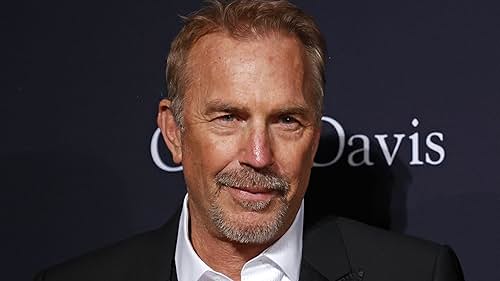
The Unforgiving Range: When the Myth Meets the Machine
The sprawling vistas of the Yellowstone Dutton Ranch, with their promise of untamed freedom and fierce loyalty, always felt like a modern-day myth made flesh. And at its heart stood Kevin Costner, a man whose very cinematic DNA is woven with the grit and glory of the American West. His portrayal of John Dutton, the patriarch battling to preserve his empire against all odds, was more than just a role; it was an embodiment, a visceral extension of Costner's own legacy as the quintessential cowboy. So when news broke of his abrupt departure from the wildly successful series, amid whispers of scheduling conflicts, creative differences, and the inevitable frictions of fame and finance, it wasn't just a Hollywood headline; it was a seismic tremor across the range, a harsh illustration of what happens when the myth collides with the unforgiving machinery of modern entertainment.
For years, Costner was Yellowstone. He brought a gravitas, a weather-beaten authority, that anchored the show's ambitious narrative. He wasn't merely acting; he was channeling an archetype he’d perfected over decades. The show, under Taylor Sheridan's masterful hand, offered a romanticized, yet brutal, vision of the West—a land where power was earned, loyalty was absolute, and every sunrise brought a new battle. Costner, with his steely gaze and laconic delivery, became the titular titan, a man both burdened by and defined by his land. He was the sturdy, gnarled oak around which the younger, wilder trees of the cast grew, providing shade and shelter, but also casting a long, unyielding shadow. This artistic synergy felt unbreakable, a testament to the power of perfect casting and compelling storytelling.
But even the most majestic oak can be felled, not by a sudden storm, but by the relentless gnawing of unseen forces. The "behind-the-scenes drama" that swirled around Costner's exit wasn't a climactic shootout on the plains, but rather the insidious whispers of discord, the clatter of conflicting schedules, and the intractable geometry of fame and finance. It became a stark illustration that even in a world built on storytelling and grand narratives, the petty realities of production can dismantle the most potent illusions. It was a reminder that the sweeping vistas and epic conflicts on screen are underpinned by very human negotiations, tight deadlines, and the clashing egos of highly successful individuals. The untamed spirit of the West, it seemed, could not be contained by the relentless demands of a tightly-scheduled, multi-season television juggernaut. Costner, like his character John Dutton, is a man who values his own counsel, who seeks to control his own destiny. When the boundaries of that control began to chafe, the exit became not just a contractual decision, but an almost inevitable narrative beat in his own larger story.
His departure isn't merely the end of a character arc; it’s a rupture in the very fabric of the show. It leaves a void akin to a crucial mountain range suddenly disappearing from the landscape. The Dutton Ranch, even if it continues to stand, will feel diminished, haunted by the ghost of its king. The audience, so invested in Costner's portrayal, is left grappling with the paradox: how can the show continue its defiant fight for tradition and legacy when its central embodiment of those very values has ridden off into the sunset?
In the end, Kevin Costner's exit from Yellowstone serves as a potent parable. It illustrates the delicate, often precarious, balance between artistic vision and the commercial imperative. It shows how even the most perfectly cast, iconic roles can be undermined by the mundane realities of the industry. It reminds us that while we crave the enduring myths, the human drama behind the curtain can be just as compelling, and often far more revealing. The unforgiving range of Hollywood, much like the land John Dutton fought so hard to protect, demands constant adaptation. And sometimes, even the most legendary cowboy must know when to dismount, to leave a legacy not just of what was, but of what could no longer be contained. The dust, it seems, has settled, but the echoes of his boots will linger long after the final credits roll.
